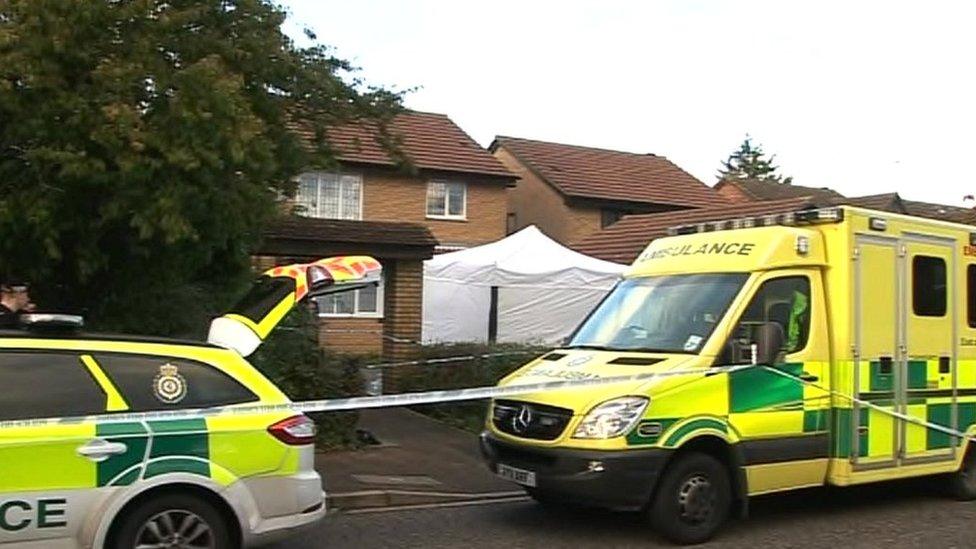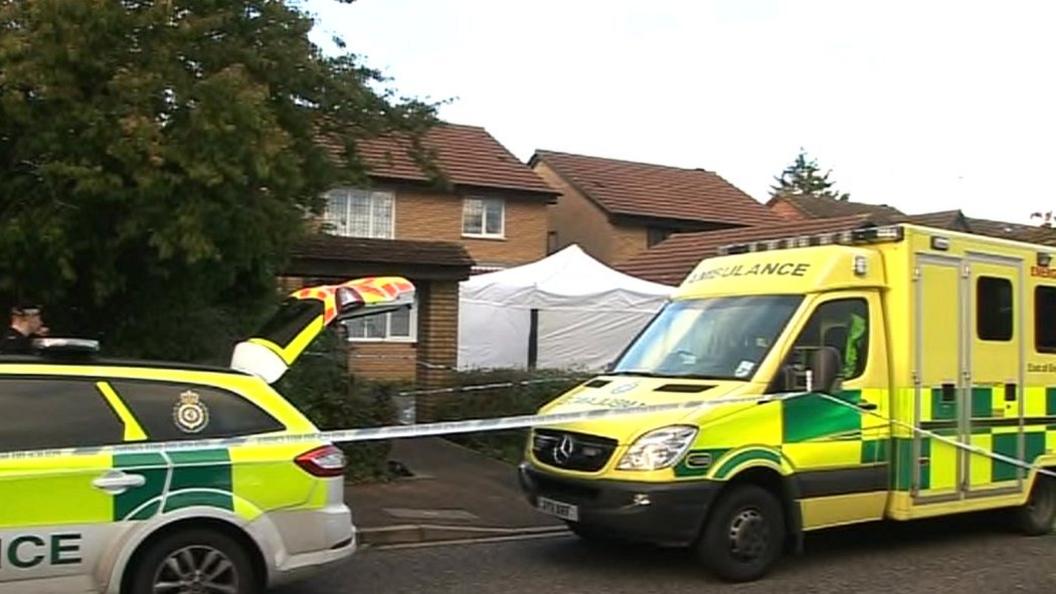Leonard Flower killing 'could have been prevented'
- Published

Leonard Flower died in the garage of his home in Carnegie Gardens, Luton
A fatal stabbing by a man with serious mental health issues could have been prevented had agencies worked together more effectively, a review has found.
The serious case review came after Sameer Babar, from Luton, stabbed Leonard Flower, prompting his sectioning under mental health laws.
It said the agencies' "failure to share information... was a significant factor in the tragedy".
The Luton Clinical Commissioning Group said improvements were being made.
The Luton Safeguarding Adults Board (LSAB) said it commissioned the report because "hindsight indicates that although [Babar] had no prior involvement with secondary mental health services, earlier and different action by agencies might have prevented this tragic murder".
'Extreme ramblings'
Concerns were raised with Luton Borough Council in September 2013, a month before Mr Flower's death on 22 October, following a visit by the police to Babar's home in August.
Babar, who pleaded guilty to manslaughter by way of diminished responsibility, had planned to give a public lecture and his "radical religious views" would potentially put him at risk "from others in the community who would not agree", the report said.
The council's safeguarding team requested a mental health assessment, but this was delayed as the mental health trust became involved.
It meant agencies only began to "engage and assess him" four days before Babar killed Mr Flower.
Babar had contacted the police again via email and phone on October 21 and had made various "extreme religious ramblings and threats".

Sameer Babar was judged to be suffering from a psychiatric illness
Officers who visited his home that day were refused permission to enter and "believed they had no power of entry".
They referred the incident to the LSAB's crisis resolution and home treatment team, which was "unsuccessful" in contacting Babar.
The report said there was a "systematic failure" across the agencies responsible for safeguarding to address Babar's longstanding mental health condition.
Prof Michael Preston-Shoot, immediate past chair of the LSAB, said: "I have met with members of the victim's family to share the findings and recommendations, and express the sincere regret and apologies of all the agencies involved that opportunities were missed to intervene earlier."
Ten recommendations were made, including the agencies having a named individual for a 'first point of contact', and an assessment being carried out to see if information sharing systems between the agencies are fit for purpose.
Carol Hill, chief executive of the Luton Clinical Commissioning Group, said: "Improvements to the entire crisis care pathway are being made, with the aim of achieving an effective, high-quality responsive crisis service."
Luton Borough Council said further training would be given "to assist staff in recognising factors that may indicate risk of extreme behaviour".
- Published13 December 2013
